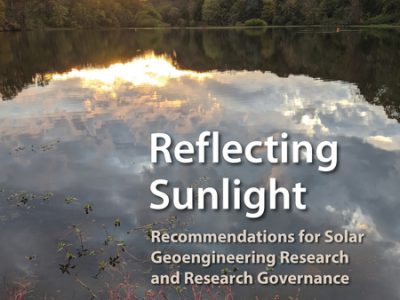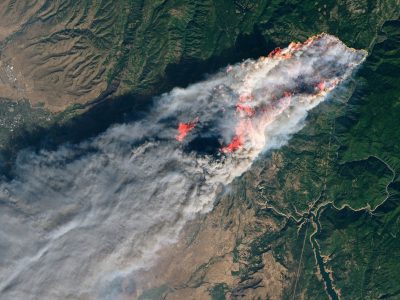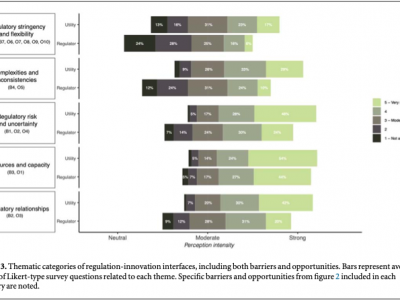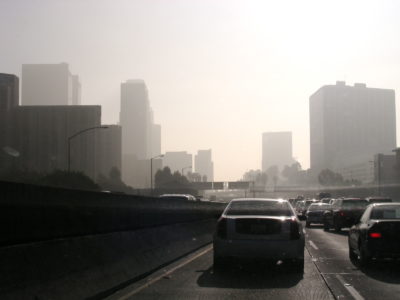Biden’s Infrastructure Plan: FAQs
Yes, it’s a big deal. And yes, it’s politically dicey.
Biden has announced a $2 trillion infrastructure plan, with a heavy focus on climate-related investments. The plan is very complicated, and the news coverage hasn’t been all that helpful. Here are the key questions we should be asking about the plan, along with my best attempts to answer. Q: What’s in the plan? A: It’s a very complicated plan even though many details haven’t been filled in. Utility Dive has nicely summarized some of the key features: ...
CONTINUE READINGThe US National Academies on Solar Geoengineering Research and Governance
Four Emmett Institute scholars react to an important new report
A few of us are part of the Emmett Institute's Geoengineering Governance Project, where we study the legal and policy issues presented by solar geoengineering and carbon dioxide removal technologies. On the former set of technologies—that is, reflecting a little incoming sunlight to cool the Earth and temporarily counteract heating from greenhouse gases—the US National Academies of Science, Engineering, and Medicine recently issued an important report Reflecting Sunl...
CONTINUE READINGMore NYC Oil
Second Circuit Creates Climate Change Preemption
A quick follow-up to Dan Farber’s post this morning regarding the Second Circuit ruling in City of New York v. Chevron. I represented the State of California in the 2011 case, AEP v. Connecticut, in which the U.S. Supreme Court ruled that federal common law applied to interstate climate change pollution (emissions of greenhouse gases), but that it was “displaced” by the federal Clean Air Act. As Dan notes, the Second Circuit, in a seriously contorted opinio...
CONTINUE READINGAppeals Court Nixes NYC Climate Lawsuit
With a clever if contrived argument, the Second Circuit tries to eliminate climate change litigation.
On Friday, the Second Circuit issued an important decision in a lawsuit against the oil industry. New York City had sued the oil companies for harms relating to climate change. The appeals court ordered the case dismissed, on the ground that any harm relating to fossil fuel is exclusively regulated by the Clean Air Act. The ruling is a setback for the plaintiffs in similar cases — how much of a setback remains to be seen. The court’s analysis is very complicat...
CONTINUE READINGDeforestation and the Climate Crisis in a Time of Pandemic
Despite the pandemic-induced global economic contraction, deforestation increased last year, with significant increases in the destruction of primary tropical forests.
Earlier this week, the World Resources Institute released its first assessment of global forest loss for 2020, offering a chance to take stock of what happened to the world’s forests during the pandemic. The news is not good. Despite a shrinking global economy, deforestation increased around the world in 2020. In temperate regions, some of the most significant forest loss occurred because of unprecedented fires. Here in California, more than 4 mill...
CONTINUE READINGThe Green MAGA-Deal Goes Public!
It's something no one expected, and for good reason.
There were gasps of astonishment when Donald Trump, Mitch McConnell, and Bernie Sanders took the stage together. The gasps turned into stunned silence as Trump began to speak. The trio were there, Trump said, to announce something HUGE, something no one ever expected: the world's biggest plan for climate action. Trump began by denouncing the media for portraying him as weak on climate change, calling himself the "greatest climate president since Abraham Lincoln."�...
CONTINUE READINGSolar Geoengineering and Public Engagement Trolling
A first test of a long-planned outdoor solar geoengineering experiment has been delayed--again. Why?
It has been a busy week in solar geoengineering. Last week, the US National Academies released a report that offers recommendations for a research program and for governance of research. (A few of us will post our thoughts on the report here soon.) Here I discuss developments regarding outdoor solar geoengineering experiments, of which there have been only a few. A couple weeks ago, I wrote of opposition to a long-planned outdoor test of equipment that Harvard-based res...
CONTINUE READINGDo regulators and utility managers have irreconcilable differences or mutual goals?
By Alida Cantor, Luke Sherman, Anita Milman, and Mike Kiparsky
Do regulators and utility managers have irreconcilable differences or mutual goals? By Alida Cantor, Luke Sherman, Anita Milman, and Mike Kiparsky. What do climate change, aging infrastructure, and urban population growth have in common? They all pose major challenges – especially for water infrastructure in the United States. And many utilities are having a hard time keeping up. Part of the problem is that the industry has relied on the same handful of tec...
CONTINUE READINGBiden’s Dilemma: Limiting Carbon from Existing Power Plants
It’s not that the policy choices are that hard. It’s the 6-3 Supreme Court.
Coal- and gas-fired power plants are a major source of U.S. carbon emissions. The Obama Administration devised a perfectly sensible, moderate policy to cut those emissions. The Trump Administration replaced it with a ridiculous token policy. The D.C. Circuit appeals court tossed that out. Now what? It wouldn’t be hard to redo the Obama policy based on all the changes in the power industry since Obama left office, which would result in much more rigorous emission...
CONTINUE READINGRegulating Interstate Ozone Pollution: EPA Nears the Finish Line
The regulatory history is dauntingly convoluted. This sixteen year regulatory saga has lessons for climate policy.
EPA issued a rule last week that will significantly improve air quality, particularly on the East Coast. This is EPA’s fourth and final iteration of a rule-making process to control interstate air pollution that began in 2005. Reflecting this history, this fourth rule is a second and presumably final revision of an update to an earlier rule called the Revised Cross-State Air Pollution Rule (Revised CASPR), which itself replaced a yet earlier rule. (CASPR is prono...
CONTINUE READING












